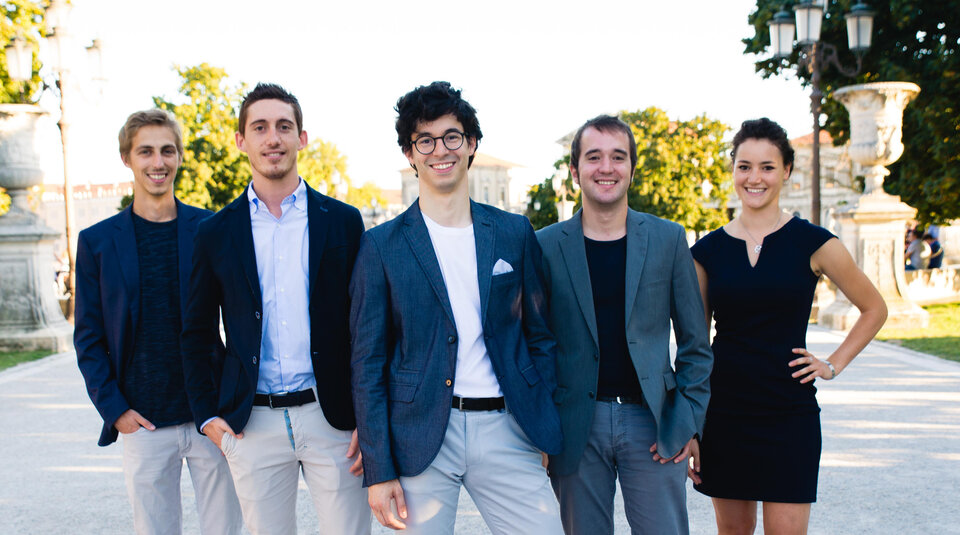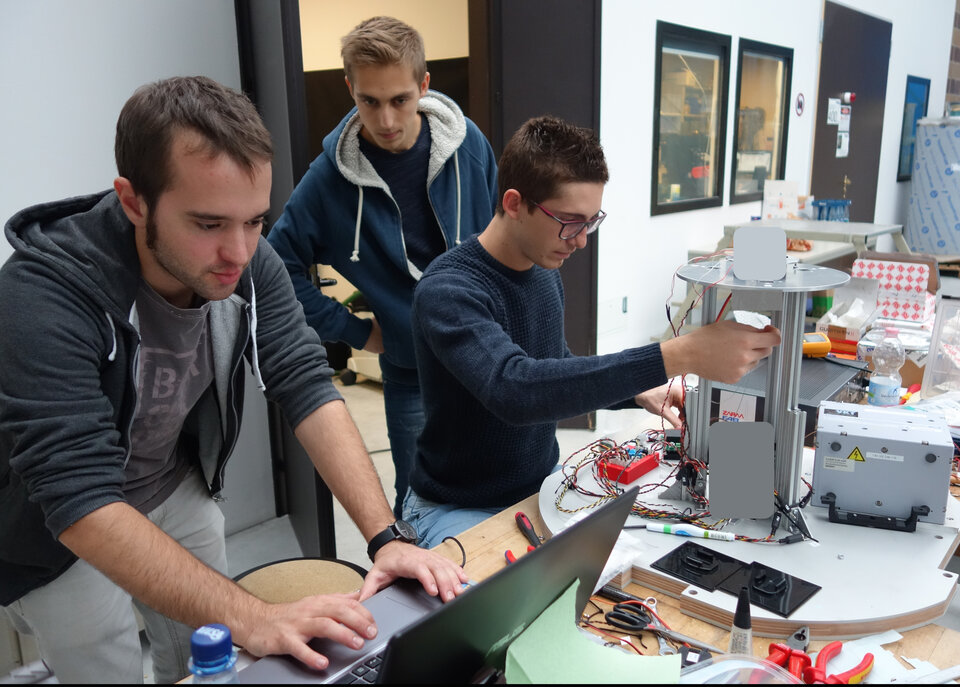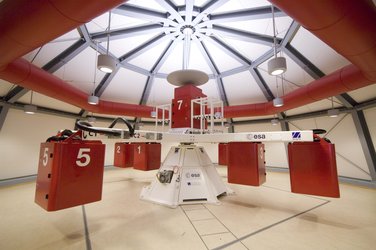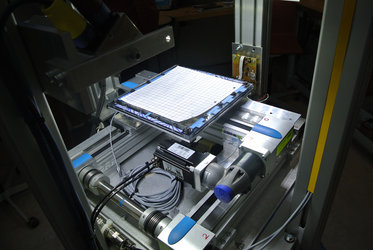Meet the teams: STAR
The STAR (System of Tether Automatic Retrieval) team is composed of three students (two masters and one Bachelor) from the University of Padova, Italy. They are developing a new concept of space tether deployer with retrieval capability.
![]()
![]() System for Tether Automatic Retrieval Experiment
System for Tether Automatic Retrieval Experiment![]()
![]()
| Final Report: | Download |
| University | University of Padova |
| Endorsing professor | Dr. Alessandro Francesconi |
| Team | Leonardo Pellegrina, Gilberto Grassi, Alvise Rossi, Alessia Gloder, Mattia Pezzato |

Whilst the physics at the basis of tethered systems in space is well-known, practical applicability must be much further investigated, not just regarding tether behaviour, but the mechanical implementation of the deployment system. In fact, the deployment of a space tether has always been a critical issue in the past space tether missions, causing failure in some of them. Furthermore, a tether retrieval has, to date, never been performed by small spacecrafts.

In this context, the STAR team’s main objective is to design, build, and test an innovative tether deployment mechanism with retrieval capability. The system is conceived to be simple, compact, and light and thus be employable in small spacecraft platforms, such as CubeSats.The technology under study could have several space applications. For example, the retrieval capability of the system could be used in Active Debris Removal tasks that take advantage of tethered soft-docking systems. Other applications could be On-Orbit Servicing such as refuelling and reboosting of spacecrafts, or tethered formation flight.The experiment is composed of a launch mechanism that will deploy a tethered probe, a braking system which controls the tether deployment, and a reeling mechanism that is the key subsystem of the experiment and will perform the tether retrieval once the deployment is complete.







